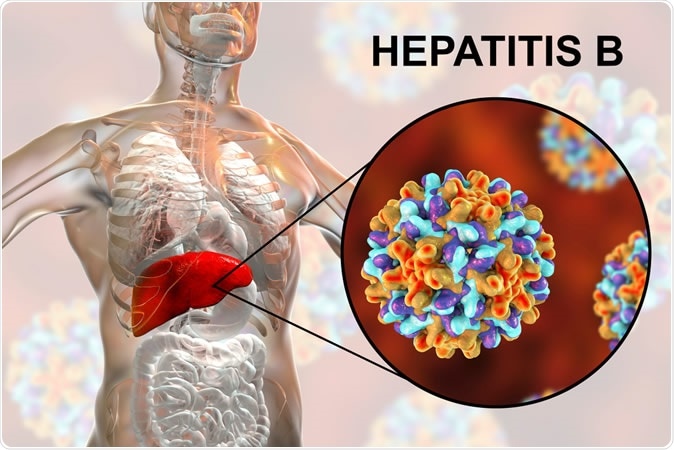HEPATITIS NATURAL REMEDY

What Is Hepatitis B?
Hepatitis B infection is caused by the hepatitis B virus (HBV). The virus is passed from person to person through blood, semen or other body fluids. It does not spread by sneezing or coughing.

Hepatitis B is a serious liver infection caused by the hepatitis B virus (HBV). For some people, hepatitis B infection becomes chronic, meaning it lasts more than six months. Having chronic hepatitis B increases your risk of developing liver failure, liver cancer or cirrhosis — a condition that permanently scars of the liver.
What Are The Signs And Symptoms Of Hepatitis B?
Signs and symptoms of hepatitis B range from mild to severe. They usually appear about one to four months after you’ve been infected, although you could see them as early as two weeks post-infection. Some people, usually young children, may not have any symptoms.

Hepatitis B signs and symptoms may include:
Abdominal pain
Dark urine
Fever
Joint pain
Loss of appetite
Nausea and vomiting
Weakness and fatigue
Yellowing of your skin and the whites of your eyes (jaundice)
What Are The Causes Of Hepatitis B?
Hepatitis B infection is caused by the hepatitis B virus (HBV). The virus is passed from person to person through blood, semen or other body fluids. It does not spread by sneezing or coughing.
Common ways that HBV can spread are:
Sexual contact. You may get hepatitis B if you have unprotected sex with someone who is infected. The virus can pass to you if the person’s blood, saliva, semen or vaginal secretions enter your body.
Sharing of needles. HBV easily spreads through needles and syringes contaminated with infected blood. Sharing IV drug paraphernalia puts you at high risk of hepatitis B.
Accidental needle sticks. Hepatitis B is a concern for health care workers and anyone else who comes in contact with human blood.
Mother to child. Pregnant women infected with HBV can pass the virus to their babies during childbirth. However, the newborn can be vaccinated to avoid getting infected in almost all cases. Talk to your doctor about being tested for hepatitis B if you are pregnant or want to become pregnant.
What Are The Complications Of Hepatitis B?
Having a chronic HBV infection can lead to serious complications, such as:
Scarring of the liver (cirrhosis). The inflammation associated with a hepatitis B infection can lead to extensive liver scarring (cirrhosis), which may impair the liver’s ability to function.
Liver cancer. People with chronic hepatitis B infection have an increased risk of liver cancer.
Liver failure. Acute liver failure is a condition in which the vital functions of the liver shut down. When that occurs, a liver transplant is necessary to sustain life.
Other conditions. People with chronic hepatitis B may develop kidney disease or inflammation of blood vessels.
How Do You Get Hepatitis B?
The hepatitis B virus is transmitted when an infected person’s blood or body fluids (such as saliva or semen) enter your bloodstream.

Ways hepatitis B is spread:
Sharing IV needles
Unprotected sex
Sharing razors or toothbrushes
From mother to newborn during the delivery process
What Happened When Hepatitis Left Untreated?
A chronic hepatitis B infection can go undetected for years – even decades in many cases. The longer a hepatitis B infection is left untreated, the more susceptible you are to developing severe scarring of the liver (cirrhosis) and liver cancer.
INTRODUCING 100%



